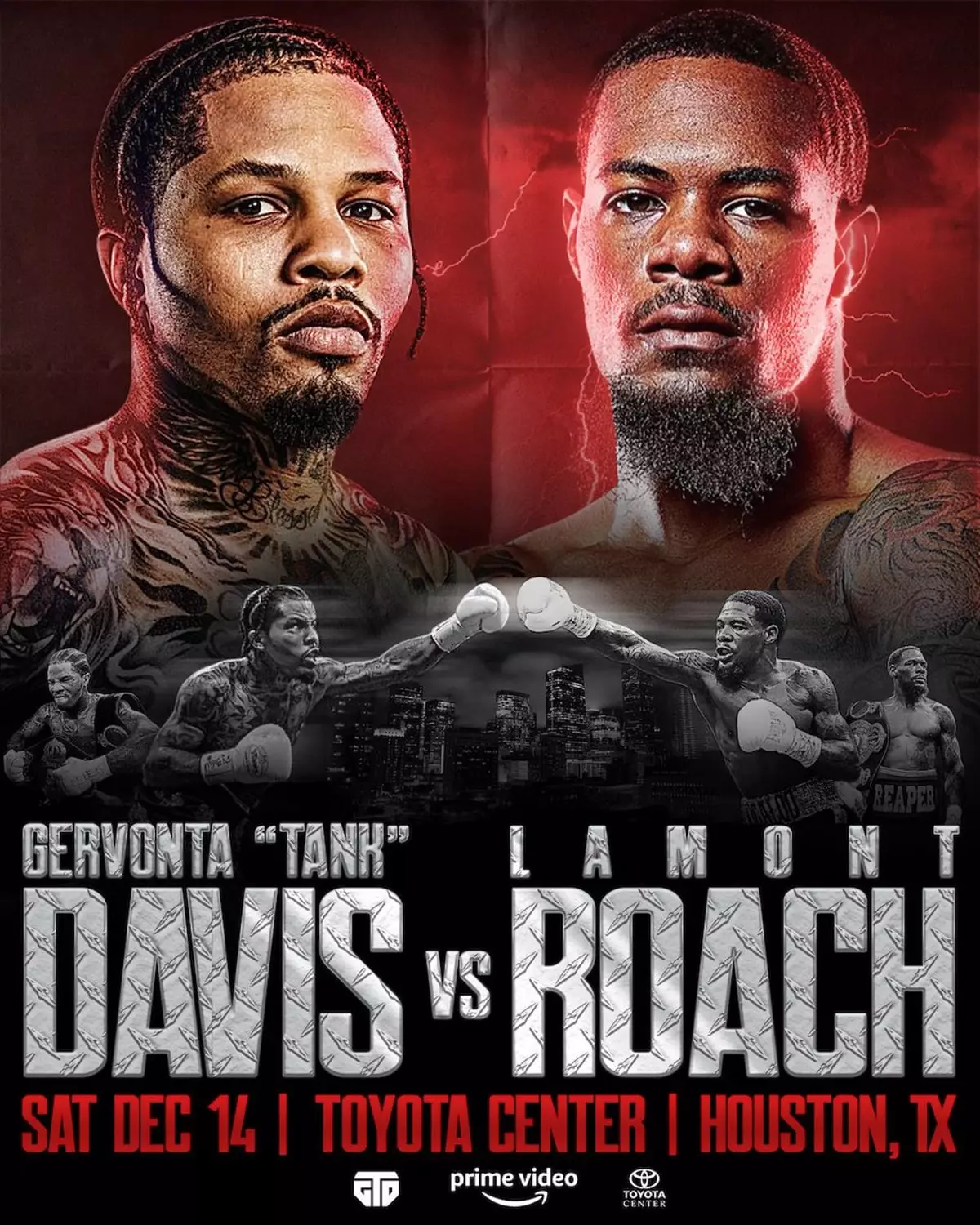The boxing world is abuzz with the anticipation of the upcoming fight between WBA lightweight champion Gervonta “Tank” Davis and Lamont Roach, scheduled for December 14th at the Toyota Center in Houston, Texas. However, this matchup has sparked a heated debate, centering on the notion of whether it represents yet another instance of “cherry-picking” in Davis’ career. While Coach Stephen Edwards insists that this label does not apply, many observers disagree, viewing the fight as emblematic of a pattern in Tank’s past choices of opponents. This article digs deeper into the arguments on both sides of this contentious issue.
Critics of the Davis-Roach matchup argue that it epitomizes cherry-picking for several reasons. Roach, with a record of 25-1-1 and only 10 knockouts, has not made significant waves in the 135-pound division. His absence from the rankings and lack of marquee victories raise eyebrows, leading to the assumption that he is an easy target for Davis. Detractors highlight that this in-house fight, under the Premier Boxing Champions (PBC) banner, seems designed to allow Davis to maintain his unbeaten record without facing formidable challenges.
Moreover, Tank’s career has often been characterized by a carefully curated list of opponents. Fans point out that if Davis had engaged in bouts against elite fighters like Vasily Lomachenko, Teofimo Lopez, or Shakur Stevenson, they would be less inclined to categorize Roach as a mere stepping stone. The lack of high-profile bouts has led to an overarching perception that Davis’ management is selecting fighters whom Tank can easily dominate, creating a facade of strength while shielding him from real threats in the lightweight division.
Despite the widespread criticism, Coach Stephen Edwards presents a counterargument that pushes back against the cherry-pick narrative. He suggests that the label arises primarily because fans hold Davis in such high regard. By acknowledging the public’s expectation that Tank should be battling top-tier competitors, Edwards implies that any matchup perceived as less demanding automatically gets relegated to the category of cherry picking.
Edwards further argues that both fighters, Davis and Roach, share regional ties, coming from the D.C. and Baltimore areas respectively. His viewpoint emphasizes the spirit of local rivalry as a worthy aspect of the fight, even if it lacks high-stakes prestige in the broader boxing landscape. This angle, while valid, ultimately pivots on perspectives of fandom and loyalty rather than the objective reality of both fighters’ skills and rankings.
The question of matchmaking looms large in discussions about Davis’ career trajectory. For every knockout artist worth celebrating, there’s a chorus of voices questioning the legitimacy of their accolades when pitted against perceived lesser competition. The inclination towards avoiding legitimate threats prolongs careers, yes, but it also potentially stunts growth—a boxer’s development thrives on the challenges presented by competent opponents.
Critics of Davis highlight his tendency to lose rounds to less formidable adversaries—an indication that his boxing skills may not be as refined as his knockout power suggests. Fights against Rolly Romero, Frank Martin, and Isaac Cruz showcased moments of vulnerability in Tank’s performance, indicating that while he can finish fights cleanly, it may be less about tactical boxing prowess and more about raw strength, technique, and managing the matchup in his favor.
The showdown between Gervonta Davis and Lamont Roach raises fundamental questions not only about the fighters involved but also about the broader dynamics of boxing promotion and the ethics of matchmaking. While Edwards’ defense of Davis underscores the intricacies of local rivalries and expectations, the discontent among boxing fans highlights a growing unease with a culture that favors safety over challenge.
Ultimately, whether Davis-Roach is branded a cherry-pick hinges on perspectives shaped by expectations of what a champion should embody. The boxing community is left to wonder if this fight will be a stepping stone toward a more significant clash or just another hollow victory in a career defined by avoidance of the real competition. The outcome will not only shape the futures of both athletes but may also influence the ongoing discourse regarding the sport’s integrity and the narrative of boxing as a whole.

